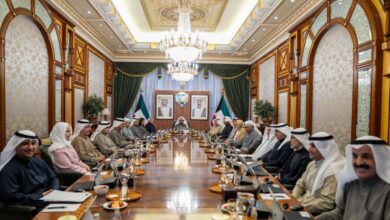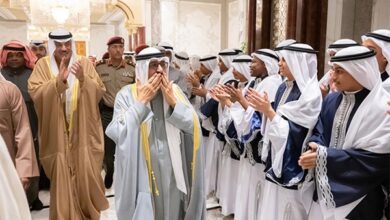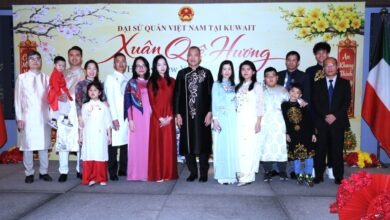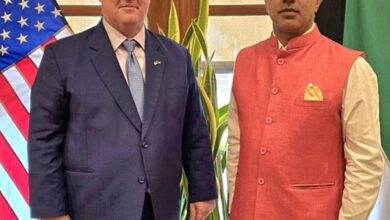Honoring Women Reshaping World Diplomacy, Breaking Barriers, Building Bridges
Women in diplomacy are not just filling roles; they are redefining power, forging consensus, and building bridges across cultures and continents.
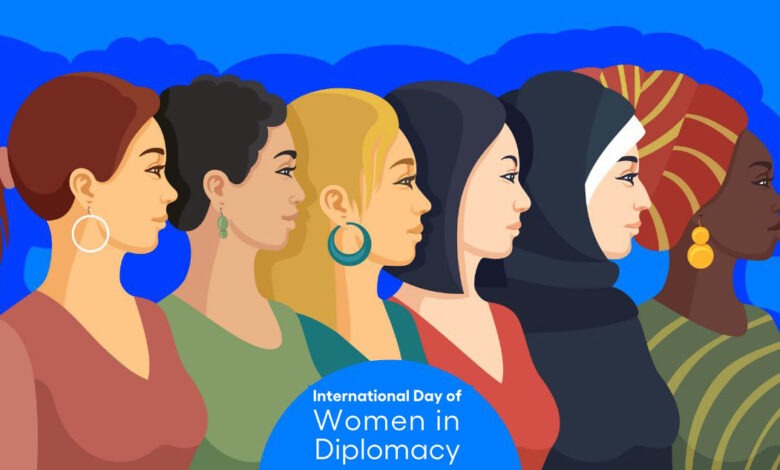
The Times Kuwait Report
In a world where diplomacy defines the path to peace, progress, and global cooperation, the voices that shape these dialogues must reflect the diversity of the world itself; women have broken barriers, challenged conventions, and redefined leadership on the world stage.
In the intricate tapestry of global diplomacy, where words weigh as much as weapons, and decisions shape the destinies of nations, women are no longer outliers—they are the leaders, visionaries, and architects of peace.
Celebrated annually on 24 June, the International Day of Women in Diplomacy is a powerful tribute to the women who have not only made a foray into foreign service, but reshaped this vital arena with integrity, wisdom, and resolve.
Established by the United Nations General Assembly in 2022, this day acknowledges the indispensable role women play in diplomacy—as ambassadors, peace negotiators, strategists, and policymakers.
The Day is both a celebration and a call to action: to recognize women’s contributions and to dismantle the structural barriers that still hinder their equal representation in world governance.
The theme for this year’s Day of Women in Diplomacy casts a spotlight on the enduring gender imbalance in diplomatic leadership. As of early 2025, women constitute a mere 21 percent of ambassadors worldwide, and only 25 nations are led by a female head of state or government. These numbers illuminate the urgent need for institutional reform policies that do not merely invite women to the table but ensure they are heard, respected, and empowered to lead.
History is rich with the legacies of women who dared to defy convention. From first-lady, activist and diplomat Eleanor Roosevelt, who served as US delegate to the UN General Assembly and was instrumental in crafting the Universal Declaration of Human Rights to Vijaya Lakshmi Pandit, the first woman and Indian to preside over the UN General Assembly in 1953, have continually proven that diplomacy thrives on empathy, resilience, and inclusive leadership.
Women such as Alexandra Kollontai, the Soviet Union’s early envoy and one of the world’s first female ambassadors, and Madeleine Albright, the first female US Secretary of State, forged paths through resistance and reshaped diplomacy into a more collaborative and human-centered enterprise.
Today, women helm foreign ministries and represent their nations with conviction on the world stage. Leaders like French diplomat and politician Catherine Colonna, India’s current envoy to the UN Ruchira Kamboj, and UAE diplomat Reem Al Hashimi embody a new diplomatic ethos—one that values cooperation over confrontation, and shared humanity over sheer power.
Yet the journey is far from over. Persistent barriers, including systemic bias, underrepresentation, and work-life disparities, continue to limit the full realization of women’s potential in diplomacy. Meaningful change demands mentorship initiatives, equitable career advancement, and the cultivation of inclusive institutional cultures.
Across embassies, UN missions, and civil society platforms, 24 June is commemorated through panels, awareness campaigns, and tributes to female diplomats, both past and present. But it is more than ceremonial; it is a reaffirmation of our collective commitment to a diplomacy that mirrors the diversity of the world it serves.
As the international community confronts overlapping crises—from climate change and conflict to public health and migration—the need for diverse voices has never been more urgent. Studies consistently show that peace processes involving women yield agreements that are more sustainable and inclusive. Empowering women in diplomacy is not just a matter of equity—it is a prerequisite for effective global governance.
Women in diplomacy are not just filling roles; they are redefining power, forging consensus, and building bridges across cultures and continents. The future of diplomacy is not only female—it is inclusive, resilient, and ready to lead.







